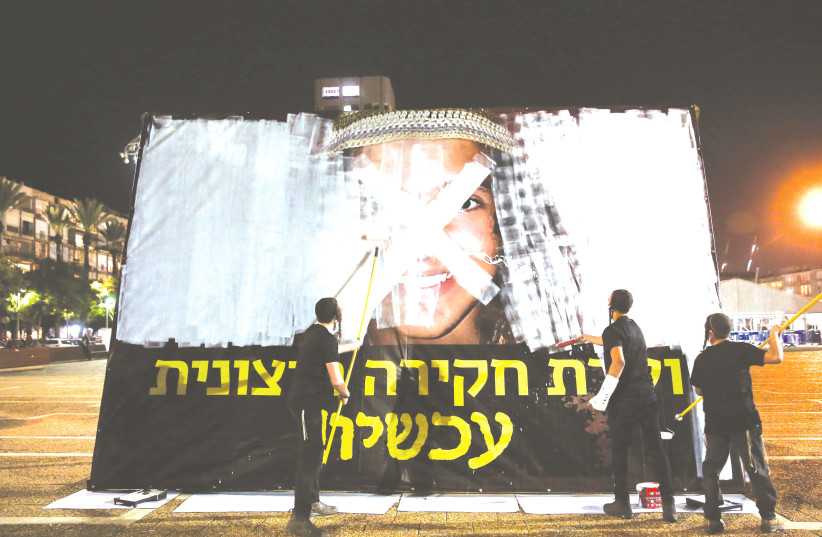Four Jewish men and teens who were part of the Ahuvia Sandak saga were indicted for allegedly endangering Palestinians' lives with rock-throwing, by the Jerusalem District Attorney's Office.
Along with the specific rock-throwing charges, the state also indicted the four for ideological terrorism.
According to the indictment, Efrayim Gazlan, Zvi Katan and two minors were involved in throwing rocks on December 21, 2020, against Palestinian vehicles based on ideological motivations.
Further, the indictment said that the rocks thrown by the group were from only a few meters away and that two rocks hit a vehicle and could have caused serious harm.
The minors' names remain under gag order.
<br>The Ahuvia Sandak saga
In January, then attorney-general Avichai Mandelblit closed the probe into police officers involved in the death of Ahuvia Sandak during a high-speed chase after him and the four others who had allegedly thrown rocks at Palestinian vehicles and then tried to avoid arrest.

The case was a major focus of Knesset MK Itamar Ben-Gvir and certain right-wing groups that regularly have altercations with the Police, with Ben-Gvir dismissing the decision as biased and calling for an external inquiry.
However, already in January 2021, the High Court of Justice had rejected a petition by the right-wing activist group Honenu to alter the parameters that Mandelblit and the Police set to probe the Sandak case.
Sandak was killed on December 21, 2020, when the vehicle he was in flipped over while he and a group of activists were fleeing from police for allegedly throwing rocks at Palestinian vehicles. Police either accidentally collided with his car or purposely tried to force his car to stop.
Mandelblit said that the evidence was not clear-cut regarding which narrative was true, but it was clear that Sandak and his fellow activists were dangerously breaking the law by fleeing arrest in a high-speed chase.
Without a definitive narrative, the most Mandelblit said he could do was order the Police to improve their training of officers about what is allowed and what is not during different kinds of high-speed chases.
The attorney-general added that the dangerousness of Sandak and his fellow activists throwing rocks at moving vehicles, their purposely circumventing a checkpoint in a dangerous way and their weaving their car back and forth to make the Police chase harder justified attempts by the Police to try to pass them and cut them off.
In addition, the Justice Ministry distributed multiple videos relating to the incident, one of which showed that the Police waited to try to pass Sandak’s car until the road was both straight and wide enough that they even would have had room to safely pass a bus.
A three-justice panel including some of the court's most conservative justices supported the Police and Mandelblit's approach of having the incident analyzed by two separate divisions of law enforcement.
Justices David Mintz, Yosef Elron and Yitzhak Amit ruled that law enforcement had been correct to probe criminal allegations against the Sandak-aligned activists via the police's Jerusalem District unit, while probing allegations regarding Sandak's death via the Police Investigations Department (PID), which is the unit that investigates allegations of police misconduct.
Accusations of police misconduct
Honenu had argued that the entire investigation should be handled by PID, focusing on the police actions which allegedly led to Sandak's death.
They had argued that involving the Jerusalem District of the Police was an attempt to cover up police misconduct and deflect blame on Sandak's colleagues.
Furthermore, PID’s deputy director Moshe Saada had criticized his boss, the unit’s director Keren Ben Menachem, for her handling of the case.
The High Court did not accept Honenu's claim, saying that the only way the probe could confront the complex realities involved is by involving the two separate police units and dividing responsibility for those parts of the incident where the suspects were solely civilians from the parts where there was potential police misconduct.
